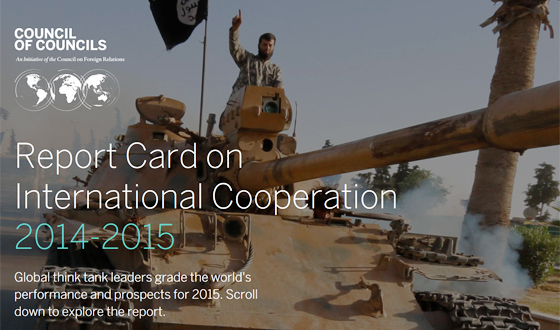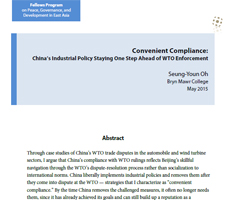
|
Are International Efforts to Tackle Transnational Threats Failing?
As a founding member of the Council of Councils, a Council on Foreign Relations initiative, EAI participated in publishing a Council of Councils Report Card on International Cooperation. This report card compiled the opinions from the heads of leading global think tanks in an attempt to evaluate international efforts on ten of the most important issues in 2014. EAI’s inputs were directly covered in five out of ten issues. 
|
|

|
|
“Convenient Compliance”: China as a Responsible WTO Member or Skillful Navigator?
Through China’s WTO trade disputes in the automobile and wind turbine sectors, Seung-Youn Oh argues that China’s compliance with WTO rulings reflects Beijing’s skillful navigation through the WTO’s dispute-resolution process rather than successful socialization into international norms.

|
|
|

|
|
Explaining the Durability of Authoritarianism
EAI invited Ben Smith (University of Florida) at the Smart Talk Forum on May 8. Focusing on why autocracies are long-lived, participants looked at the role of institutions, typological distinction within authoritarian regimes, and macro-foundational approaches to understanding the longevity of autocracy.

|
|
|

|
|
How to Conceptualize Asia’s Disposition toward International Norms?
On May 7, EAI held expert seminar with Alexander Dukalskis (University College Dublin). Dukalskis looked at ways to measure the disposition of South Korea, China, and Japan towards international norms, specifically their responses to the International Criminal Court.

|
|
|

|
|
“History Problem” and Japanese Domestic Politics
EAI invited Yongwook Ryu (Australian National University) on May 26 to discuss the implications of the “history problem” in affecting regional interstate relations through national identity and Japanese domestic politics. Ryu used the causal effect between “history problem” and Japanese public opinion.

|
|
|